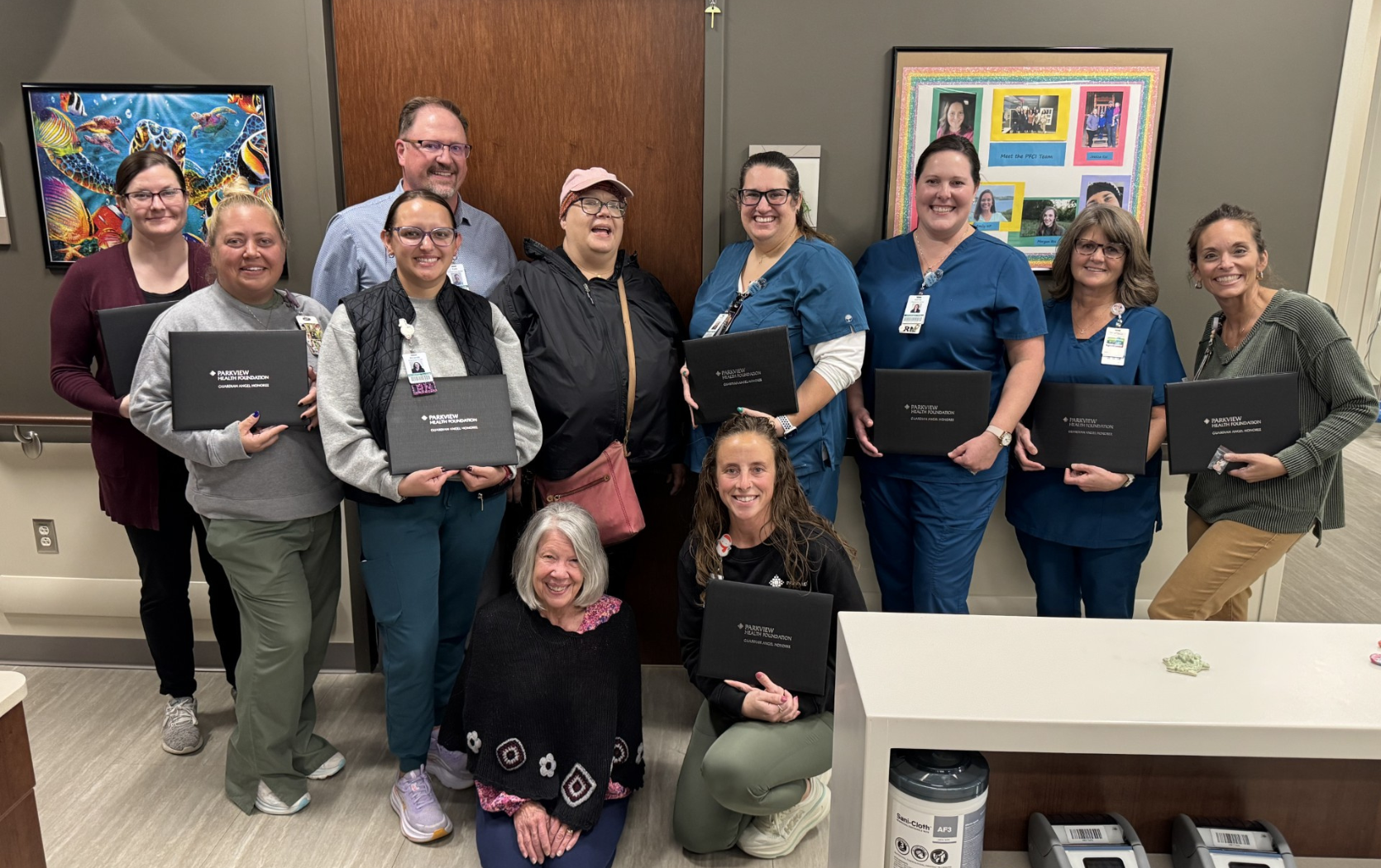
Amyotrophic lateral sclerosis (ALS) is a progressive neurodegenerative disease that affects nerve cells in the brain and spinal cord, often impacting a person's ability to speak and swallow. Meaghan Wolfe, outpatient speech-language pathologist, Parkview Hospital Randallia, discusses the importance of early intervention and therapy and where those living with the disease can turn for help.
How do speech-language pathologists help patients living with ALS?
Because the disease can affect a person's ability to speak or swallow, speech-language pathologists are often the first to suspect ALS. If we believe a patient might have ALS, we will immediately refer them to a neurologist. Additionally, treatment of speech and swallowing problems usually focuses on compensatory strategies. We try to teach individuals with these symptoms to maximize muscle use for clear speech and safe swallowing. Given the disease's progressive nature, we aim to address the eventual speech concerns that will arise proactively. We do this by educating people with ALS about message and voice banking. These involve using technology to record and preserve their voice as they sound when healthy, so the recordings can be used through a communication device when their speech becomes unclear. They can record anything from "Good morning!" and "I love you" to their favorite jokes, sayings, common requests, medical information and even stories about their childhood.
At what point in a patient’s health journey with ALS should they seek treatment?
Ideally, speech therapy should begin as early as possible. The sooner we get involved, the sooner patients and their families can learn more about message and voice banking to preserve their voice. Both techniques require clear speech, so if the patient seeks speech therapy later in the disease process, the speech is usually unclear, and the banking systems aren't effective. Also, the sooner treatment for maintaining swallowing ability can begin, the better it is for patients to continue eating and drinking safely to avoid pneumonia and malnutrition.
What are the benefits of seeking therapy early?
Early intervention and therapy will assist in maintaining an individual’s current function level for as long as possible. We know the disease progresses, but speech therapy can teach people strategies and exercises to keep them communicating well and eating safely for as long as possible.
What are the risks of delaying treatment or therapy?
Delaying treatment and/or therapy for those living with ALS will make it difficult for them to continue communicating effectively. Difficulty swallowing, related to the disease, could also lead to pneumonia and malnutrition.
What are the most common barriers to seeking treatment?
In many cases, ALS is a diagnosis of exclusion, meaning that many medical tests and workups occur before a formal diagnosis is given, often delaying referrals to speech therapy. Another barrier that often arises is distance. Some individuals diagnosed with ALS don't live near medical centers familiar with the treatment of the disease, making access to care a considerable hurdle.
How can patients and caregivers find and utilize these services?
Speech therapy requires a doctor's referral, but once a referral is acquired, patients can schedule an appointment for evaluation.If you or a loved one want to know if Parkview Hospital Randallia's outpatient therapy program is right for you, please contact your primary care provider to determine if you qualify for a referral or call 260-373-3202 for more information.
Additionally, patients and their families can also seek treatment at Parkview's ALS Clinic, where dedicated individuals help patients manage the disease. Though there is no cure for ALS, the care team strives to improve a patient's quality of life while providing exceptional care close to home. To learn more, please visit the clinic page or call 260-425-6780.
Finally, it's important to note that up to 80-95% of individuals diagnosed with ALS will lose their natural speaking ability at some point. However, communication options exist even when a patient can no longer speak clearly. We can help determine the best option for you. Remember, the earlier you seek assistance, the more comfortable and successful you will be.



